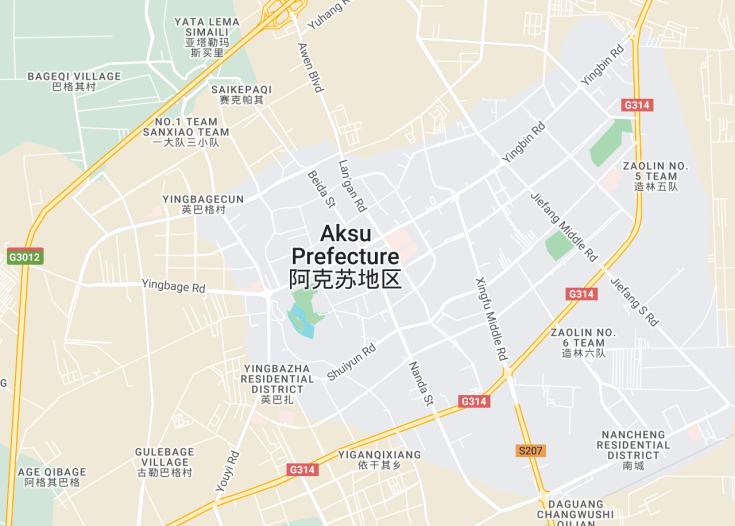Aksu City, located in the Xinjiang Uyghur Autonomous Region of China, serves as a fascinating travel destination rich with cultural heritage and natural beauty. Known for its expansive landscapes and historical significance on the Silk Road, Aksu offers a unique blend of traditional Uyghur culture and modern Chinese development. Visitors can explore ancient archaeological sites, vibrant bazaars, and pristine natural reserves. Aksu’s role in silk production offers insight into its historical economic importance, making it a must-visit for history enthusiasts and nature lovers alike.
Don’t miss the chance to visit the Aksu Museum. It provides a deep dive into the region’s history and showcases rare Silk Road artifacts.
For an authentic local experience, plan your visit during the Aksu Apple Festival. Enjoy traditional music, dance, and, of course, the finest apples in the region.
Top things to do & see in Aksu City
Select the following sights and activities to discover best tickets and tours available in Aksu City.
Aksu City: A Glimpse into the Heart of Xinjiang
| Country | China |
| Time in Aksu City | GMT+6 |
| Language spoken | Mandarin Chinese |
| Population | 570,000 (As of 2021, source: National Bureau of Statistics of China) |
| Currency | Renminbi (RMB), Symbol ¥, Code CNY |
| Airports | Aksu Airport (7 mi / 11 km). |
Aksu City, located in the northwest part of China in the Xinjiang Uygur Autonomous Region, serves as a fascinating historical and cultural destination. Rich in history, Aksu has been a strategic point along the Silk Road, fostering exchanges between the East and the West. This city, surrounded by the vast and rugged landscapes of Central Asia, continues to be a testament to the region’s vibrant past and dynamic present.
Where is Aksu City?
Aksu City lies in the Aksu Prefecture of the Xinjiang Uygur Autonomous Region in western China, acting as a gateway to the Silk Road.
Distances:
| Route | Distance by car | Time by car |
| Urumqi to Aksu | about 723 miles (1164 km) | approx. 12 hours |
| Kashgar to Aksu | about 284 miles (457 km) | approx. 5 hours |
What is Aksu City famous for?
Aksu City is renowned for its vital role in the ancient Silk Road trade route, its cultural tapestry woven from a diverse demographic mix, and its significant agricultural industry, particularly for fruit production such as melons and its famous Aksu apples.
History
Prehistoric to Ancient Times (Before 1000 AD)
The region known today as Aksu City has a history that traces back to prehistoric times. Situated along the northern branch of the Silk Road, it has been a crucial point of contact between East and West. Early inhabitants were primarily engaged in agriculture, benefiting from the fertile lands near the Aksu River. The initial settlements transitioned into an organized community with the establishment of the Kingdom of Kucha, which played a significant role in cultural exchanges along the Silk Road during the 1st millennium BC.
The Medieval Era (1000 AD – 1600 AD)
During this period, Aksu City thrived as a trade hub on the Silk Road. The spread of Islam in the region during the 10th century contributed greatly to the cultural and social landscape. Aksu became a center for Islamic scholarship and education. The city witnessed several invasions and was under the rule of various Turkic, Mongol, and Tibetan empires which influenced its architecture, language, and customs.
The Qing Dynasty and Modern Era (1600 AD – Present)
With the advent of the Qing Dynasty in the 17th century, Aksu City was incorporated into the Chinese empire. The region experienced significant economic growth through the cultivation of cash crops such as cotton and fruit. In the 20th century, the city continued to develop rapidly with the establishment of modern infrastructures. Today, Aksu is recognized for its rich cultural heritage and plays a vital role in China’s Belt and Road Initiative, fostering international cooperation and development.
Visit Aksu City
What to see and do in Aksu City, China.
Aksu City offers a unique blend of natural beauty and historical richness ready to be explored. Notable attractions include:
- The Aksu Museum, showcasing artifacts that narrate the history of the region from ancient times.
- The Aksu River, perfect for scenic walks and picnics.
- Local markets, where visitors can sample regional specialties and crafts.
- Nearby Tianshan Mountains, accessible for day trips and hikes.
Seasonal Festivals in Aksu City
Aksu City hosts a variety of cultural and agricultural festivals throughout the year, reflecting its rich heritage and vibrant community life. Notable events include the Spring Festival, celebrated with traditional music and dance, and the Harvest Festival in autumn, where locals and visitors alike can enjoy the bounties of the season.
Best time to visit Aksu City
The ideal time to visit Aksu City is during spring (April to June) or autumn (September to November). These seasons offer pleasant weather, making it comfortable to explore the outdoors and participate in local festivals.
Is Aksu City worth visiting?
Aksu City is indeed worth visiting for those intrigued by history, culture, and natural beauty. The city’s historical sites provide a deep insight into the Silk Road’s legacy, while its natural landscapes offer picturesque settings for outdoor activities.
However, visitors should be prepared for a language barrier and less westernized amenities than might be found in more tourist-heavy areas of China. Overall, Aksu offers a compelling blend of adventure and historical exploration that can be highly rewarding for the right traveler.









